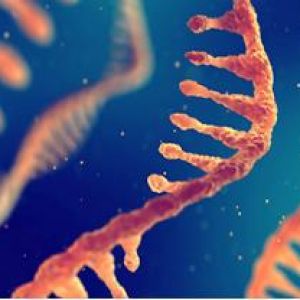Study Links COVID-19 to Self-attacking AutoantibodiesPosted by Candy Swift on January 27th, 2022 The coronavirus disease (COVID-19) pandemic began in December 2019 and has rapidly spread worldwide since then, causing millions of deaths, and massive strains on national public health systems. Research on COVID-19 has never stopped, and scientists are gradually discovering more new facts about the pathogenesis, sequelae, as well as vaccines and therapies for SARS-CoV-2. More recently, a series of studies have linked this virus to autoantibodies. l What is autoantibody? Autoantibodies are associated with the loss of the immune system\'s capacity to discriminate between self and non-self antigens. They are antibodies that respond uniquely to self-antigens, which are harmful and are produced as a result of the lack of tolerance response to self-antigens. Autoantibodies can also be found in healthy humans, where they grow independently of antigen fortification by the immune system. These antibodies are known as natural autoantibodies because they have a broad range of reactivity against both external invaders and self-antigens. As an important part of the immune system, autoantibodies have become hotspots in the immunology field. Many laboratories and biotech companies have been focusing on autoantibody research, represented by Creative Biolabs who serves one-stop natural autoantibody detection, profiling, epitope mapping, etc. l Research about COVID-19 and autoantibodies A study spearheaded by Stanford researchers showed that at least 1 in 5 hospitalized COVID-19 patients develop new antibodies that attack their own tissue within a week of admission. It was published on September 14, 2021 in Nature Communications. To enable the researchers to track the development of the autoantibodies, their research is based on the observation of about 50 patients, of whom blood samples were drawn on different days, including the day they were first admitted. Within a week after checking in at the hospital, about 20% of these patients had developed new autoantibodies to their own tissues that weren’t there the day they were admitted, which were similar to what is commonly seen in a diagnosed autoimmune disease. According to the author, the existence of newly identified autoantibodies may suggest a rise in antibodies that had not been noticed at low levels. It\'s possible that the inflammatory shock to the systems of patients with severe COVID-19 resulted in an increase in previously undetectable, and maybe harmless autoantibodies that these people used to have before infection. Another study gave the similar answer that infection from COVID-19 causing coronavirus can trigger an immune response that goes beyond the initial infection and recovery stage, known as autoantibodies, regardless of the symptomatic or asymptomatic nature. This research by Cedars-Sinai researchers was published in the Journal of Translational Medicine on December 30, 2021. They found that people who were previously infected by the novel coronavirus possess a variety of autoantibodies that stay in the body even after six months of being fully recovered. For the study, researchers observed 177 people who had previously been infected with COVID-19. Blood samples from these people were compared to those acquired from healthy people. Antibodies were found to be high in all COVID-19 affected people. These were also reported in people with disorders in which the immune system attacks its own healthy cells, such as rheumatoid arthritis and lupus. The author of the study said that these findings help to explain what makes COVID-19 an especially unique disease. These patterns of immune dysregulation could be underlying the different types of persistent symptoms in people who go on to develop the condition now referred to as long COVID-19. Research on links between COVID-19 and autoantibodies is still going on, and this can be essential for developing effective interventions against immune-mediated sequelae of COVID-19. Like it? Share it!More by this author |


